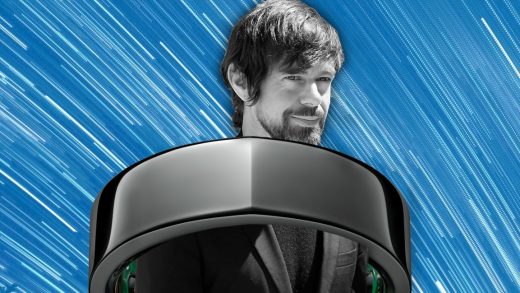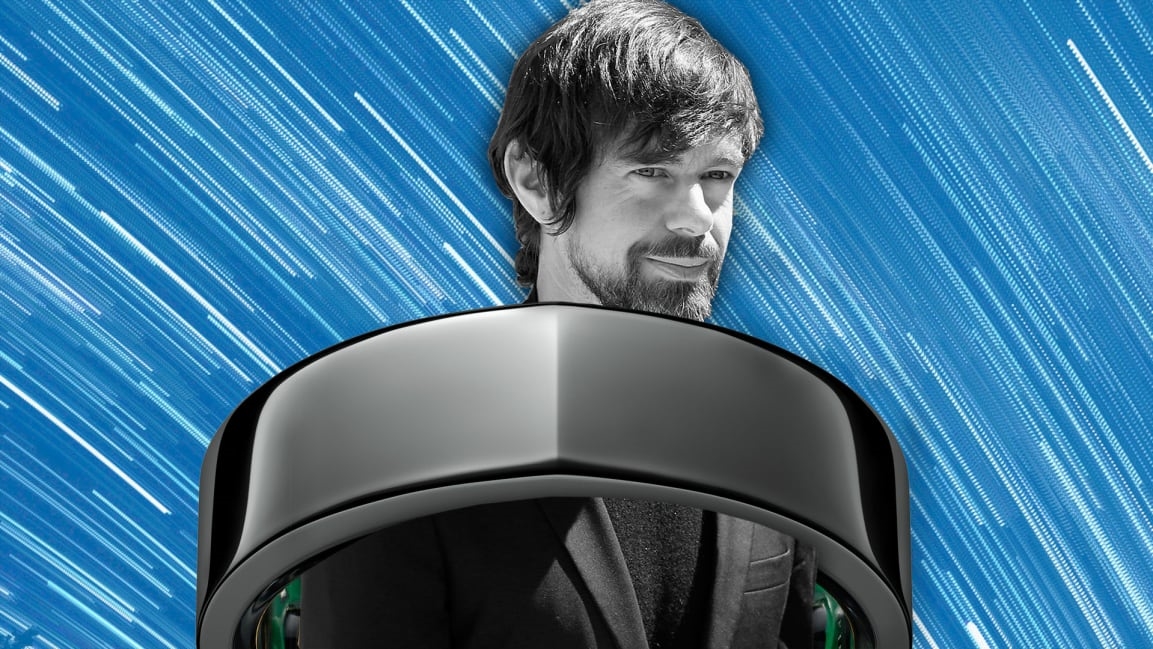The tech industry’s quest to help us sleep better is just beginning
Lots of people don’t sleep well. The reasons are numerous, especially as COVID-19 takes over life as we know it. But our collective restlessness comes at a time when there are more sleep aids than ever.
There’s a lot of promise in consumer sleep tech, a category that encapsulates everything from newfangled beds to wearables such as rings and wristwatches that help us achieve best practices for getting some shut-eye. And it’s no shocker that some of the biggest cheerleaders for sleep tech are tech executives.
Square and Twitter CEO Jack Dorsey in particular is known to wear an Oura smart ring to help him sleep at night. I checked in with him a few weeks ago, when I imagined he might be suffering through some restless nights. It was just after activist investor Elliott Management took a 4% stake in Twitter and tech journalist Kara Swisher predicted that Dorsey might lose his job at the company he cofounded.
Still, when I spoke to Dorsey—the day after he revealed he would no longer be making a planned months-long trip to Africa given the coronavirus outbreak and state of affairs at Twitter—he told me he was sleeping just fine. “I think my score was a 95?” he says.
Dorsey was referring to his sleep score, a number devised by Oura. It’s on a scale that goes up to 100 and takes into account not only how long people have slept, but in theory, how well they slept. To get a sleep score, you have to wear Oura’s thick silver ring, which measures heart rate, heart rate variability, temperature, respiratory rate, and movement throughout the day and night. (My own sleep score on Thursday night was 86, and I have a lot less to be stressed about than the preternaturally calm Dorsey.)
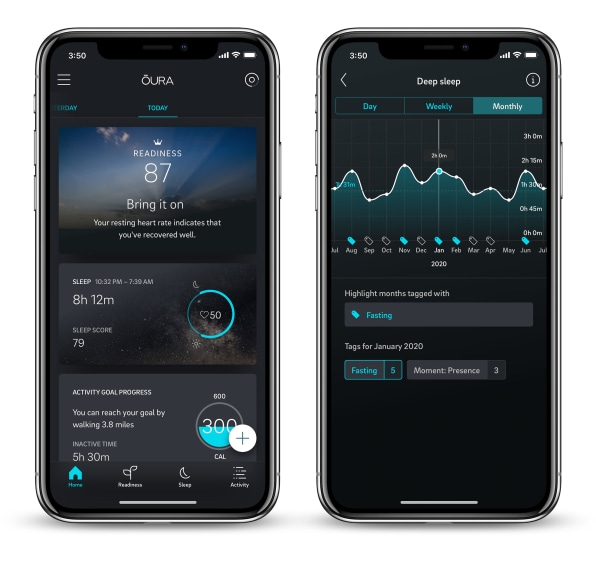
That Dorsey was sleeping well under such onerous circumstances is an impressive endorsement for Oura. He attributes his success to going to bed at roughly the same time every night and making sure he eats well and exercises. “Consistency matters the most, even more so than the number of hours,” he says.
Big industry, bigger problem
The tech community has been vocal about its love of the $299 Oura sleep ring, and the startup has raised money accordingly. Today the Oulu, Finland-based company is announcing a $28 million fund raise from Forerunner Ventures as well as Dorsey’s company Square, among others. Oura has sold 150,000 rings to date and is launching a new website with articles on how to sleep better. The company is also bringing Matt Walker, the renowned neuroscientist and psychologist who wrote the popular book Why We Sleep onto its advisory board as chief scientist.
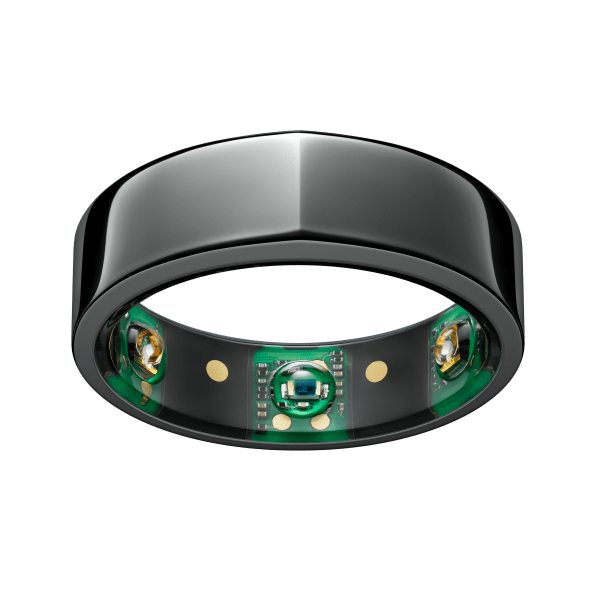
[Photo: courtesy of Oura]
Oura is part of a growing industry worth an estimated $70 billion devoted to helping us sleep better. It includes weighted blankets, health optimization sites like Huffington’s Thrive Global, and sleep tracking tech. Big tech companies have already shown interest in the market. Apple acquired sleep tracker Beddit in 2017 and a year later, Google’s life sciences company Verily partnered with medical device company ResMed to develop technology for detecting sleep apnea.
In the last 10 years there have been mobile apps and smartwatches and bed straps that promise to capture how well we are (or aren’t) sleeping. Despite all this innovation, much of America is still not snoozing as soundly as Dorsey.
“The impression is that we are sleeping less than we did a hundred or more years ago by quite a bit,” says Dr. David Rapoport, research director at Mount Sinai’s Integrative Sleep Center. “As far as people can tell, we may be sleeping as much as an hour less than we were sleeping then, and we’re paying the price for it.”
A recent survey from the Sleep Foundation, based on a poll of 1,100 people, found that 44% of Americans spend between two and four days per week feeling sleepy. The effects of this sleeplessness range from irritability to headaches to lack of focus and general lethargy. The survey also found the more stress people experienced, the more days they reported feeling sleepy.
“We all are under a lot of pressure to put in hours of work,” says Rapoport. “We’re under big pressure to work through what used to be considered non-work hours and stay up as a result.”
Researchers suggest that a lack of sleep can increase risk of obesity, diabetes, depression, heart attack, hypertension—the list goes on. The toll sleepiness takes has been the subject of countless books and research papers over the last 20 years, and spawned the whole sleep industry. What’s still unclear is whether all this research and business activity is helping us sleep better.
Why we sleep
Once upon a time, humans fell asleep when the sun went down. More recently, light bulbs—and now the blue-light glow of our phone screens—have kept us awake, sometimes painfully so. Bodies need rest, and modern life is not very conducive to good sleep.
Scientists still haven’t concretely answered the question “why do we sleep?” But they have some good ideas. There is some evidence that a portion of sleep, the rapid eye movement cycle (REM), is devoted to consolidating memory. If during the day, the mind takes in the world around it, at night it organizes it, shuffling some memories to long-term storage and deleting others—a sort of disk defragmentation for the mind.
A lot of the technology is just raising awareness.”
Craig Heller, Stanford University
Scientists also think a component of sleep may be devoted to recovery. Some studies show that humans are more vigilant after a good night’s rest. There are still other ideas about why we sleep as a mechanism for conserving energy. But it’s difficult to conclusively prove any of these theories, in part because it’s hard to separate out all the variables that contribute to how people sleep and what happens as they do.
The particulars of what’s fact in the sleep world—and what’s merely theory—are hotly contested. Alexey Guzey, who identifies himself as an independent researcher, recently published a piece of criticism on Why We Sleep, the book by Oura’s new chief scientist, Matt Walker. Guzey castigates Walker for overstating the damages of sleep deprivation and the benefit of getting eight hours of sleep. Citing the Sleep Foundation’s guidance, Guzey says that people should be getting roughly seven to nine hours of sleep depending on the person. To assert otherwise, he suggests, is damaging to the public.
It’s worth noting that Guzey is not a sleep expert. Walker responded generally to criticism from his readers in his own lengthy blog post, that both welcomed critiques of his book and offered counter-discussion points. Rather than proving who is right and who is wrong in this dispute, the disagreement highlights how much is still unknown about sleep and calls into question the extent to which sleep can currently be optimized.
Innovation in sleep
Much of the tech industry’s sleep innovation is aimed at helping people get regular sleep, but it has a lot of metrics attached to it as well. For example, Eight Sleep makes a $2,495 smart bed that warms and cools as your body temperature changes throughout the night. The concept is based on the idea that overheating disrupts sleep. People may want to get warm under the covers when they first get to bed. But by the middle of the night, they get hot and wake up. Eight Sleep also tracks a person’s body temperature as well as heart rate and movement. The corresponding app makes determinations about your sleep based on these data points. In general, though, the app is aimed at instilling good bedtime behavior, such as hitting the sack at the same time every night.
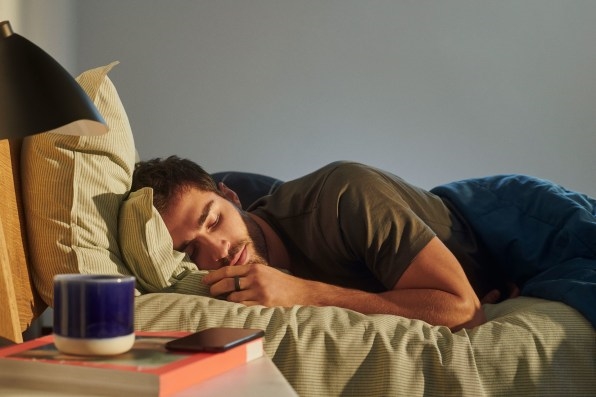
“A lot of the technology is just raising awareness,” says Craig Heller, a Stanford University professor who studies circadian rhythms and the impact of sleep on learning.
The Oura ring estimates how long a person is spending in each stage of sleep. The goal is to maintain certain percentages of deep sleep, light sleep, and REM sleep, a phase identified by increased heart rate and breathing. The ring also tries to identify a person’s optimal sleep window. For example, based on my Oura reading, I should be in bed by 10 and asleep no later than 10:30. The goal of the Oura ring is to help you develop good behaviors, but it’s easy to get caught up in the numbers.
And it isn’t clear how accurate those numbers are. A 2017 study involving the Oura ring showed that the ring had some ability to discern sleep stages. It was benchmarked against polysomnography, a test typically conducted in a sleep lab that measures oxygen-blood level, heart rate, breathing, and brain waves. Oura was good at detecting when a person was sleeping, but much less effective at determining deep sleep, light sleep, and REM sleep. The study also noted that there was a discrepancy in how well the ring was able to detect sleep cycles depending on which finger a person wore it on. Oura says that the 2017 study is based on the first version of its software. It has plans to validate the latest version of its artificial intelligence platform with the University of California, San Francisco.
Oura is far from the only sleep-tracking gizmo whose data is imperfect. Despite the general lack of accuracy in consumer sleep tech, sleep researchers I spoke with are still generally approving of such devices, because they see them as an opportunity to get people to pay attention to how they’re sleeping. Even if sleep tracking isn’t all that reliable, Heller says, “it’s accurate enough to let you know if you have a real problem.”
I’m not really good at telling you whether the quality of my sleep has improved by a little or a lot.”
Dr. David Rapoport, Mt. Sinai
Sleep tech’s biggest power is not necessarily to give people insight into exactly how they’re sleeping. Like a ribbon tied to your finger, a sleep tracker reminds people to go to sleep at certain times or to exercise. Developing a routine around sleep is perhaps to best sleep aid of all. To that point, Oura is launching a rebranded website with content aimed at helping its users create their own sleep habits. “When you go from early adopters to mass audience, often what you miss is education,” says Oura’s CEO, Harpreet Rai.
Some experts believe that obsessing over specific sleep-related data may be detrimental. “We have a lot of people coming to the sleep clinics saying, ‘Well, my sleep app is telling me that I’m sleeping too little. It’s telling me that I don’t get enough REM,’” says Mt. Sinai’s Rapoport. “And so the doctor says, ‘Well, how do you feel? Do you have any problems with your sleep?’” Inevitably, he says, patients will say they feel fine, but their app is telling them they’re not doing something right. And that drives them crazy.
There’s another flaw at the heart of trying to improve sleep, says Rapoport. Even scientists don’t fully understand what constitutes better-quality sleep. For instance, while he thinks that Eight Sleep’s temperature regulating bed may ultimately help people sleep better, he doesn’t know how much better. “I don’t really know what happens to the quality of my sleep when you cool my feet, and I’m not really good at telling you whether the quality of my sleep has improved by a little or a lot,” he says.
The Dorsey regimen
The real trick to good sleep is looking at the data in aggregate rather than in detail. Oura ring wearer Jack Dorsey says that he tries not to be overly strict about his own regimen. Five years ago, his problem was that he was running two large companies with a complete lack of schedule. By nature, he says, he’s a night owl, prone to tinkering with ideas well into the early hours of the morning. “I think there’s still times for that,” he says. “It just has to be exceptional instead of regular.” He’s also found that he has more focus throughout the day as a result of going to sleep at a regular time, exercising regularly, and watching his diet.
Between 5:30 p.m. and 6 p.m., Dorsey has dinner. Sometime after dinner and before bed he does an evening meditation. He leaves his phone outside his bedroom, but near enough that he can answer a late-night call. His room has black-out shades, so it’s completely dark. He goes to bed around 10 p.m. and wakes at 5 a.m.
I ask him where his stress goes since it obviously isn’t disrupting his sleep.
“I think I can just mitigate a lot more stress and contain it within the day,” he says. “I’ve just definitely seen where I get a really bad night of sleep and how it impacts my focus and what I can do with the hours before me.”
The payoff of Dorsey’s happy slumber makes sense. “Sleeping well almost certainly makes stress easier to handle, despite stress making sleep more difficult for most of us,” says Rapoport. Sleep, he adds, is not a panacea—just one component of a healthy lifestyle.
Of course, Dorsey doesn’t just have good sleep habits. He has a deeply personal set of diet and exercise practices that may be contributing to his ability to fall asleep at the end of a hard day. And maybe he has a little less to worry today than when I spoke with him, at least on the work front. The week after we spoke, Twitter announced a deal with Elliott Management that would keep Dorsey at Twitter’s helm for the foreseeable future.
In sleep, as in all else, consistency is king.
(13)

